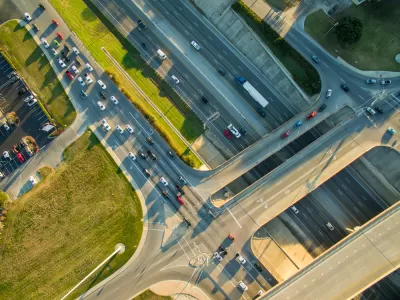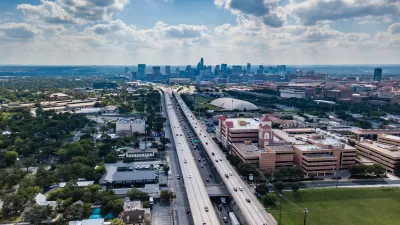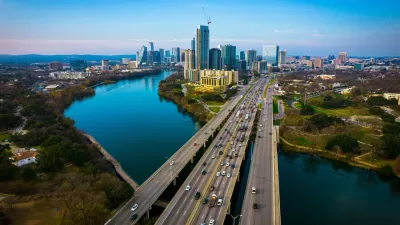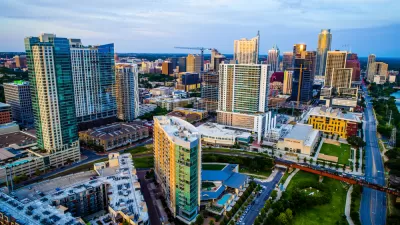Legally powerless to stop TxDOT’s plans for freeway expansion, Austin city leaders hope to influence the agency to take some mitigation measures as it widens I-35.

The battle between local officials and the Texas Department of Transportation continues in Austin, where the city council voted 10 to 1 in support of a list of demands that calls for more crossings over Interstate 35, minimal displacement of homes and businesses in the project area, and other mitigation measures as part of TxDOT’s plan to expand the roadway through the capital.
As Nathan Bernier reports for KUT 90.5, “Some people who spoke during public comment Thursday told council members their demands didn't go far enough to reduce the harms caused by growing the highway's footprint by 42 acres.” The only opponent to the demands in local government is Austin’s mayor, Kirk Watson, who says the city can’t afford the items on the list and that the request to divert truck traffic would result in millions in lost toll revenue.
Although the city council is taking its demands to TxDOT through its public feedback process, city officials remain painfully aware of “an irritating political reality for opponents of the highway widening: Local government has limited power to slam the brakes.” Austin city officials and community groups have protested the expansion for years, but TxDOT has pushed ahead with its plans.
FULL STORY: Austin City Council demands changes to I-35 plan

Trump Administration Could Effectively End Housing Voucher Program
Federal officials are eyeing major cuts to the Section 8 program that helps millions of low-income households pay rent.

Planetizen Federal Action Tracker
A weekly monitor of how Trump’s orders and actions are impacting planners and planning in America.

Ken Jennings Launches Transit Web Series
The Jeopardy champ wants you to ride public transit.

California Invests Additional $5M in Electric School Buses
The state wants to electrify all of its school bus fleets by 2035.

Austin Launches $2M Homelessness Prevention Fund
A new grant program from the city’s Homeless Strategy Office will fund rental assistance and supportive services.

Alabama School Forestry Initiative Brings Trees to Schoolyards
Trees can improve physical and mental health for students and commnity members.
Urban Design for Planners 1: Software Tools
This six-course series explores essential urban design concepts using open source software and equips planners with the tools they need to participate fully in the urban design process.
Planning for Universal Design
Learn the tools for implementing Universal Design in planning regulations.
Ada County Highway District
Clanton & Associates, Inc.
Jessamine County Fiscal Court
Institute for Housing and Urban Development Studies (IHS)
City of Grandview
Harvard GSD Executive Education
Toledo-Lucas County Plan Commissions
Salt Lake City
NYU Wagner Graduate School of Public Service





























